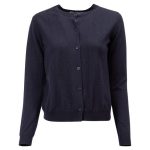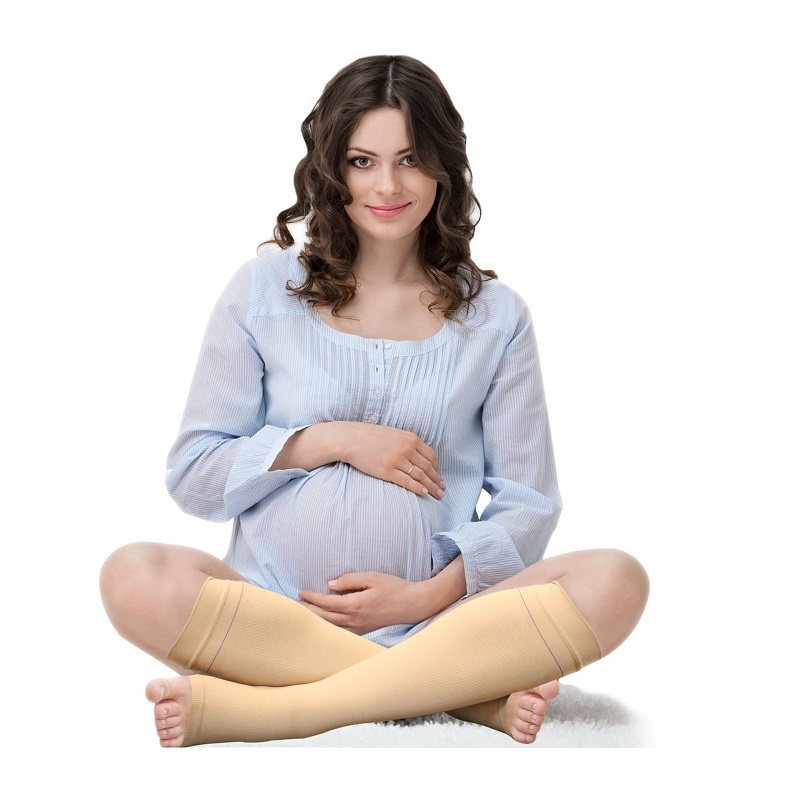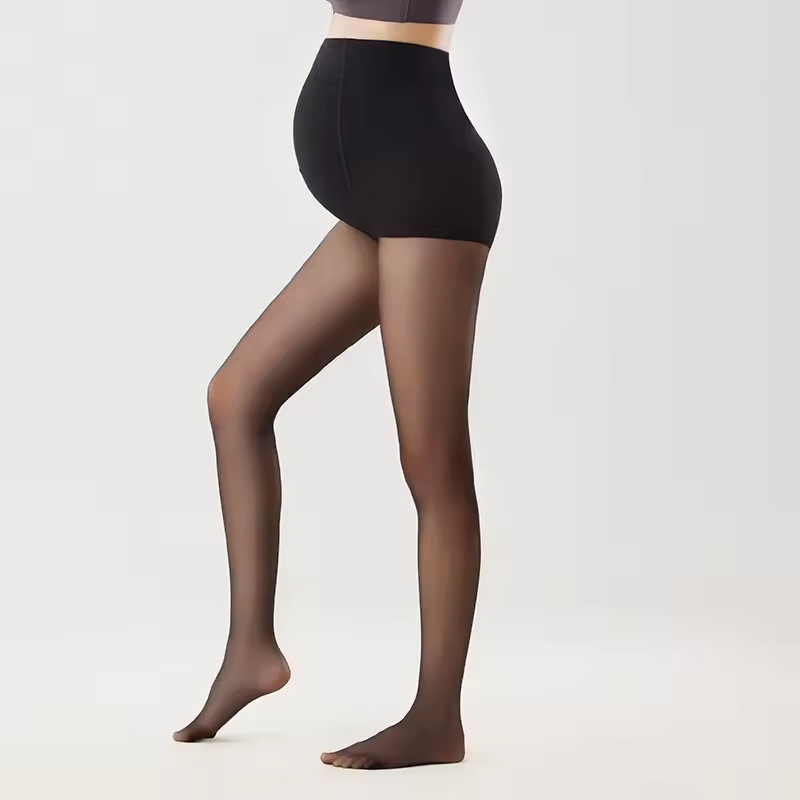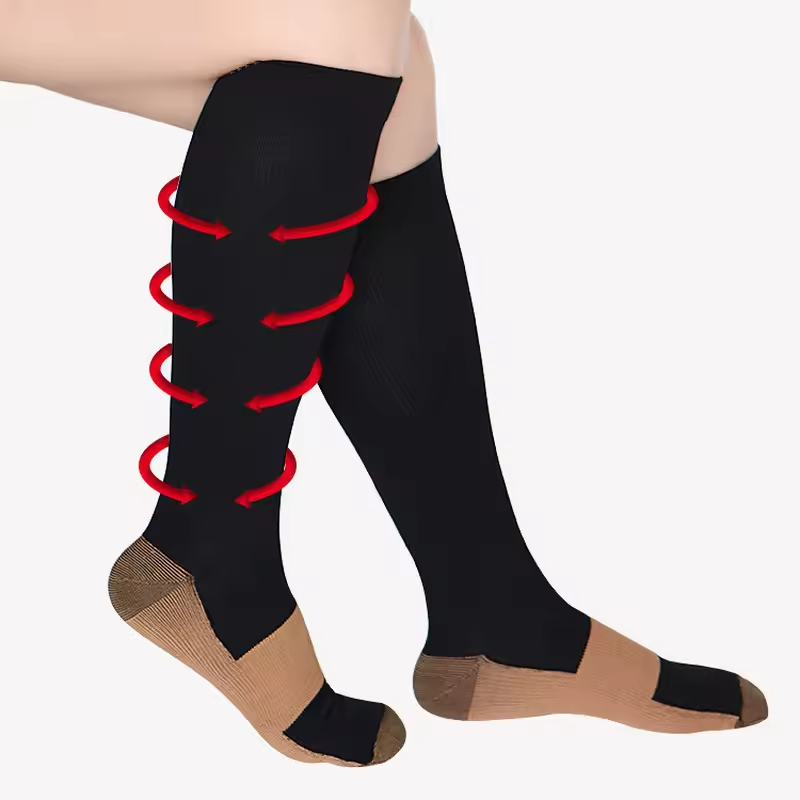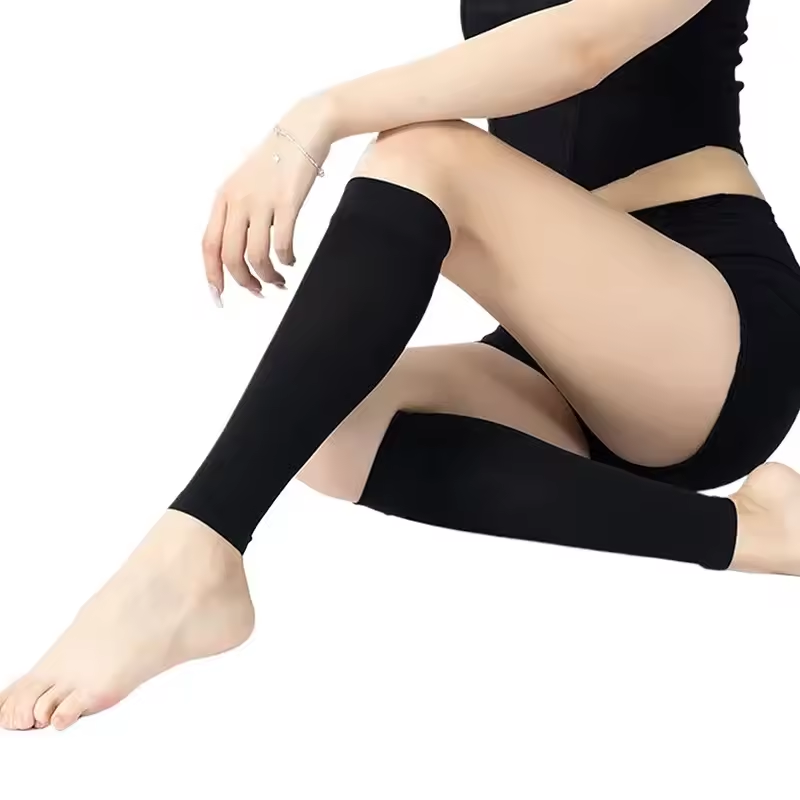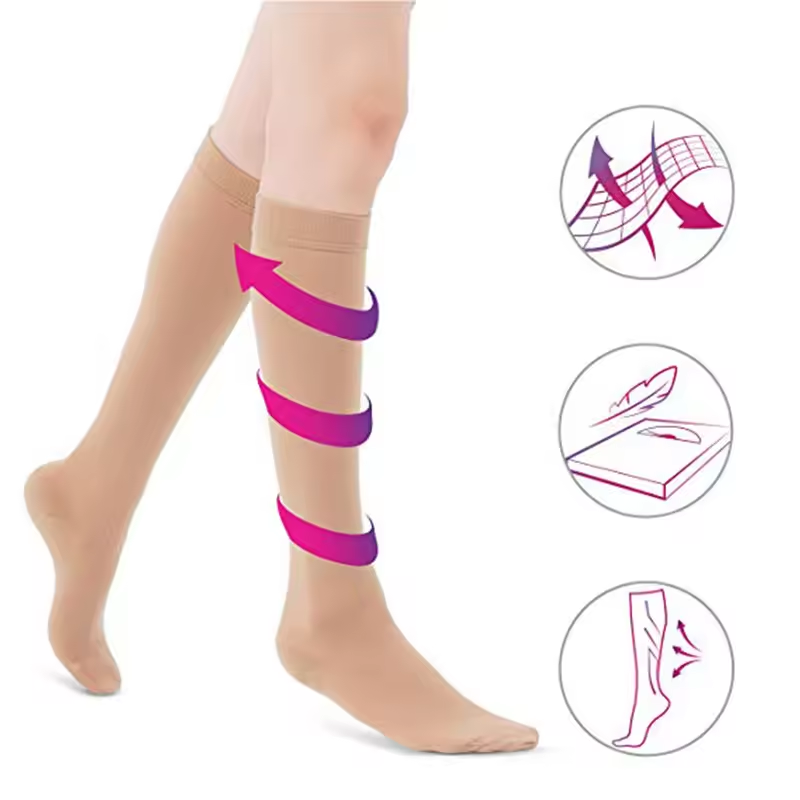Pregnancy brings a multitude of changes to a woman’s body, leading to various challenges, including swelling, discomfort, and fatigue. One effective solution that has gained popularity among expecting mothers is the use of compression socks. These specialized stockings offer numerous benefits that can enhance comfort and support during pregnancy. In this article, we will explore what compression socks are, their benefits, how to choose the right pair, and tips for proper usage.
What Are Compression Socks?
Understanding Compression Technology
Compression socks are specially designed hosiery that applies pressure to the legs and feet. This pressure helps improve blood circulation, reduce swelling, and prevent the development of varicose veins. The technology behind these socks involves graduated compression, meaning the pressure is highest at the ankle and gradually decreases as it moves up the leg. This design promotes better venous return, which is especially crucial during pregnancy when hormonal changes and increased blood volume can lead to various circulatory issues.
Types of Compression Socks
There are several types of compression socks available, varying in length, level of compression, and material. Common styles include knee-high, thigh-high, and full-length pantyhose options. The level of compression is measured in millimeters of mercury (mmHg), typically ranging from mild (8-15 mmHg) to moderate (15-20 mmHg) and higher levels for medical needs. For pregnant women, mild to moderate compression is generally recommended unless advised otherwise by a healthcare professional.
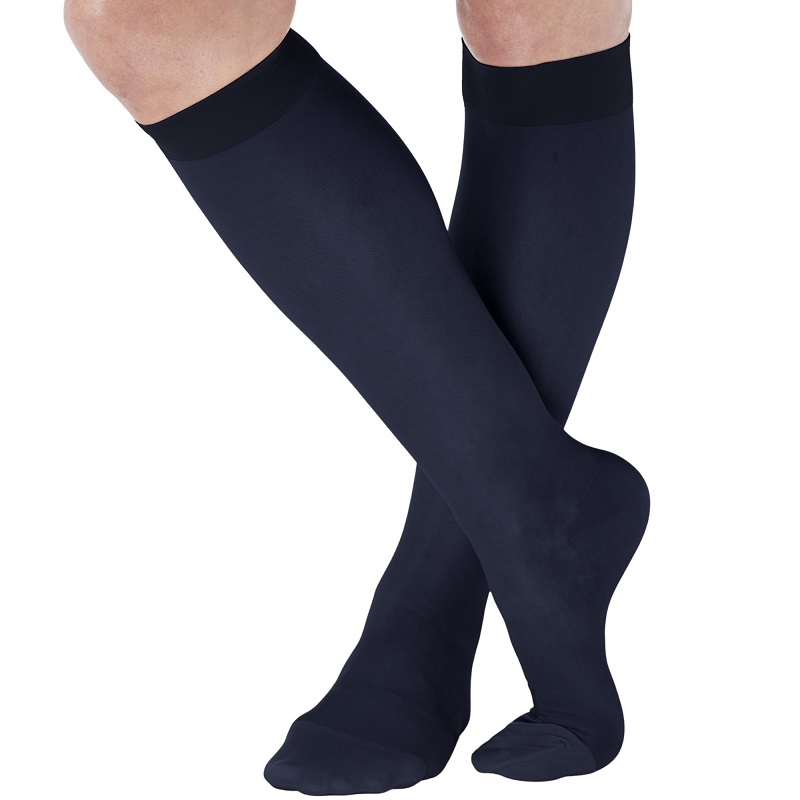
Benefits of Compression Socks During Pregnancy
Improved Circulation
One of the primary benefits of wearing compression socks during pregnancy is enhanced blood circulation. As the uterus expands, it can exert pressure on the veins in the pelvic area, impeding blood flow. Compression socks help counteract this pressure, facilitating better blood return from the legs to the heart. Improved circulation can help reduce feelings of heaviness in the legs and lower the risk of developing deep vein thrombosis (DVT), a serious condition that can arise during pregnancy.
Reduced Swelling and Discomfort
Swelling, or edema, is a common complaint among pregnant women, particularly in the later stages of pregnancy. Compression socks can significantly alleviate this issue by providing consistent pressure on the legs. This pressure helps minimize fluid accumulation in the tissues, thus reducing swelling in the ankles and feet. Additionally, many women report that wearing compression socks leads to increased comfort throughout the day, allowing them to remain active and engaged in daily activities without feeling weighed down.
Prevention of Varicose Veins
Varicose veins can be an unfortunate side effect of pregnancy due to hormonal changes and increased blood volume. The added pressure from compression socks helps support the veins in the legs, preventing the pooling of blood that leads to varicose vein formation. By incorporating compression socks into their daily routine, many pregnant women find they can reduce the appearance of existing varicose veins and lower their risk of developing new ones.
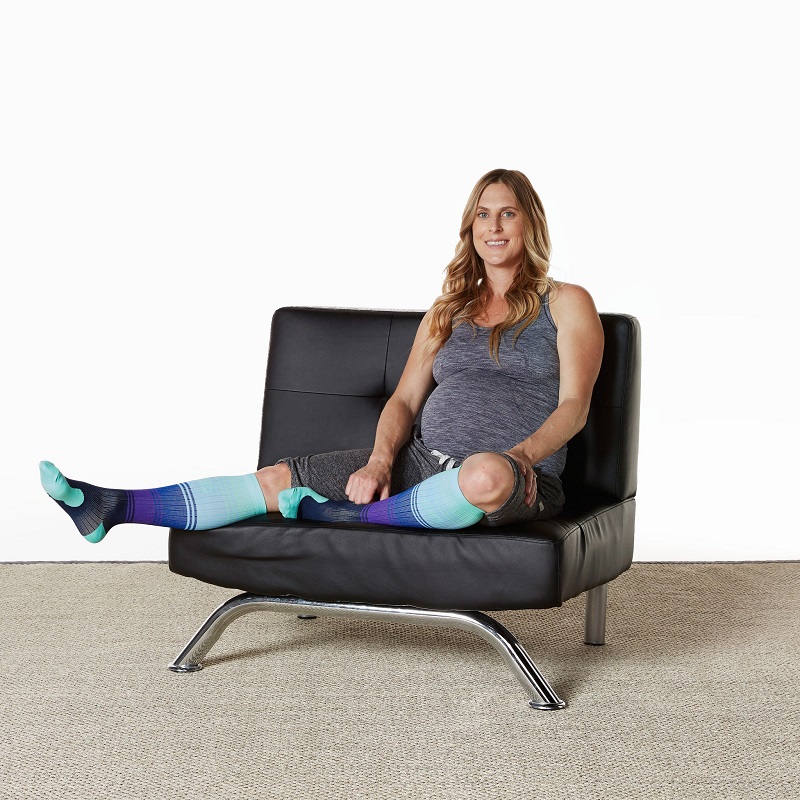
How to Choose the Right Compression Socks
Consult Your Healthcare Provider
Before purchasing compression socks, it is advisable for pregnant women to consult with their healthcare provider. A doctor can provide personalized recommendations based on individual health needs and circumstances. In some cases, a prescription may be necessary to obtain a higher level of compression, especially if there are underlying health concerns or a history of venous issues.
Consider Compression Level and Style
When selecting compression socks, consider the level of compression that best suits your needs. For general use, a mild to moderate compression level (15-20 mmHg) is often sufficient for most pregnant women. Additionally, choose a style that fits your lifestyle. Knee-high socks are popular for everyday wear, while thigh-high options may provide extra support for those who experience significant swelling. It’s essential to ensure that the socks fit snugly but not too tightly, as overly tight socks can lead to discomfort or even restrict circulation.
Material and Breathability
The material of the compression socks also matters, especially during warmer months. Look for socks made from breathable, moisture-wicking fabrics that help keep your feet dry. Many brands offer options that include cotton blends or synthetic materials specifically designed for comfort and durability. Choosing the right material can enhance your overall experience and encourage regular use throughout your pregnancy.
Tips for Wearing Compression Socks
Start Slowly
For those new to wearing compression socks, it’s important to start slowly. Begin by wearing them for a few hours each day and gradually increase the duration as you become accustomed to the feeling. This approach allows your body to adjust to the compression, making it easier to integrate them into your daily routine. Many women find it helpful to wear them during the day, particularly when they are on their feet for extended periods or during travel.
Put Them On Correctly
Proper application of compression socks is essential for maximizing their benefits. It’s best to put them on in the morning when swelling is typically at its lowest. Make sure to follow the manufacturer’s instructions for wearing them. You may need to roll them down initially and then gradually pull them up for a snug fit. Ensuring that there are no twists or bunches in the fabric will also help maintain effective compression.
Maintain Good Hygiene
Like any other piece of clothing, compression socks require proper care to ensure they remain effective and hygienic. Follow washing instructions carefully, usually involving gentle cycles and air drying to preserve the elasticity of the fabric. Regularly wash your compression socks to prevent the buildup of moisture and odors, ensuring they remain comfortable for daily wear.
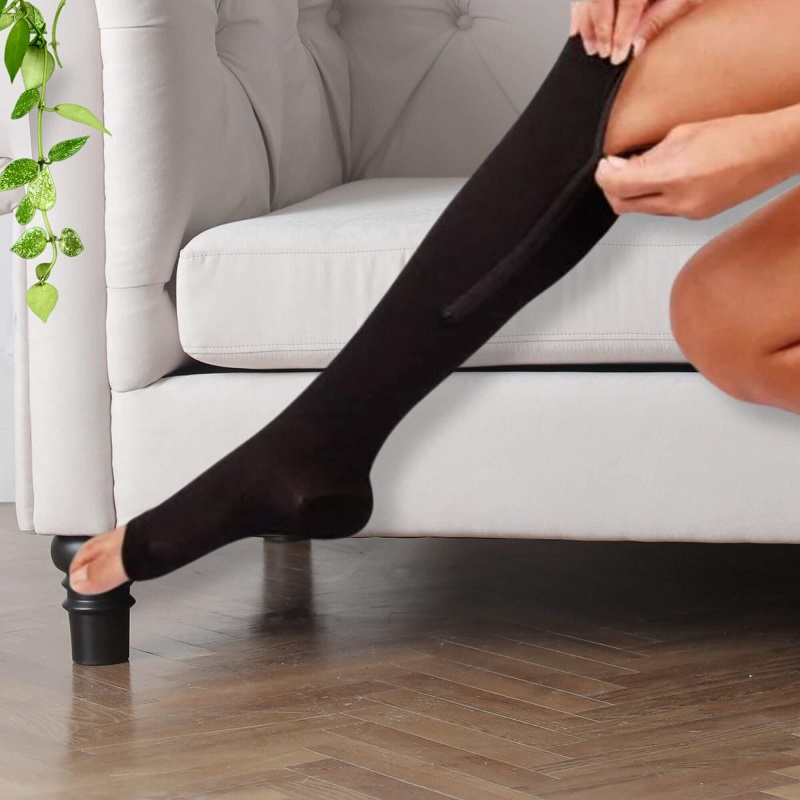
Common Myths About Compression Socks
Myth: Compression Socks Are Only for Older Adults
One prevalent myth is that compression socks are only necessary for older adults or those with pre-existing medical conditions. In reality, many pregnant women can benefit from wearing them to manage discomfort and promote circulation. The increased weight and hormonal changes during pregnancy create a unique set of challenges that compression socks can help alleviate, regardless of age.
Myth: They Are Uncomfortable to Wear
Another misconception is that compression socks are uncomfortable or restrictive. While they do provide a degree of pressure, modern designs come in various styles, colors, and materials that prioritize comfort. Many women find them surprisingly comfortable to wear throughout the day, especially compared to the discomfort of swollen legs and feet without them.
Myth: Compression Socks Are Only for Long Distances
While it’s true that compression socks are often recommended for long-distance travel to prevent DVT, they are beneficial for everyday activities as well. Whether you’re working, standing for extended periods, or simply relaxing at home, wearing compression socks can provide support and comfort throughout your pregnancy journey.
When to Seek Medical Advice
Recognizing Signs of Discomfort
While compression socks can greatly benefit many pregnant women, it’s essential to recognize when to seek medical advice. If you experience persistent pain, severe swelling, or discoloration in your legs despite wearing compression socks, it’s crucial to consult a healthcare provider. These could be signs of a more serious condition that requires immediate attention.
Understanding Medical Conditions
Certain medical conditions may contraindicate the use of compression socks. Women with specific heart conditions, severe circulation problems, or skin infections should consult their healthcare professional before starting to wear compression socks. A doctor can evaluate individual health circumstances and determine the most appropriate course of action.
Conclusion: Embracing Comfort and Support
The Importance of Self-Care During Pregnancy
Pregnancy is a beautiful journey, but it can also be fraught with physical challenges. Compression socks offer a practical solution for many of the discomforts that arise during this time. By improving circulation, reducing swelling, and preventing varicose veins, these socks can enhance the overall quality of life for expecting mothers.
Encouragement to Try Compression Socks
If you’re pregnant and experiencing discomfort in your legs or feet, consider trying compression socks as part of your self-care routine. With various options available, there’s sure to be a perfect fit for your needs. Embrace the comfort and support that compression socks can provide, allowing you to enjoy your pregnancy to the fullest!



